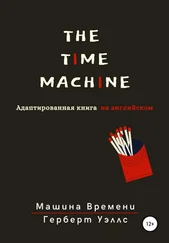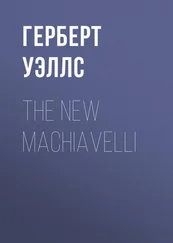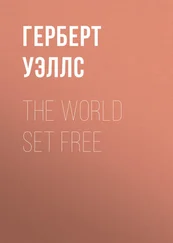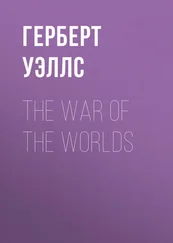It is quite possible that a certain percentage of these conscripts may be caught by the interest of what they are doing; the asylum attendant may decide to specialise in psycho-therapeutic work; the hospital nurse succumb to that curiosity which underlies the great physiologist; the Arctic worker may fall in love with his snowy wilderness.
One other leading probability of a collectivist world order has to be noted here, and that is an enormous increase in the pace and amount of research and discovery. I write research, but by that I mean that double-barrelled attack upon ignorance, the biological attack and the physical attack, that is generally known as "Science". "Science" comes to us from those academic Dark Ages when men had to console themselves for their ignorance by pretending that there was a limited amount of knowledge in the world, and little chaps in caps and gowns strutted about, bachelors who knew a passable lot, masters who knew a tremendous lot and doctors in crimson gowns who knew all that there was to be known. Now it is manifest that none of us know very much, and the more we look into what we think we know, the more hitherto undetected things we shall find lurking in our assumptions.
Hitherto this business of research, which we call the "scientific world", has been in the hands of very few workers indeed. I throw out the suggestion that in our present-day world, of all the brains capable of great and masterful contributions to "scientific" thought and achievement, brains of the quality of Lord Rutherford's, or Darwin's or Mendel's or Freud's or Leonardo's or Galileo's, not one in a thousand, not one in a score of thousands, ever gets born into such conditions as to realise its opportunities. The rest never learn a civilised language, never get near a library, never have the faintest chance of self-realisation, never hear the call. They are under-nourished, they die young, they are misused. And of the millions who would make good, useful, eager secondary research workers and explorers, not one in a million is utilised.
But now consider how things will be if we had a stirring education ventilating the whole world, and if we had a systematic and continually more competent search for exceptional mental quality and a continually more extensive net of opportunity for it. Suppose a quickening public mind implies an atmosphere of increasing respect for intellectual achievement and a livelier criticism of imposture. What we call scientific progress to-day would seem a poor, hesitating, uncertain advance in comparison with what would be happening under these happier conditions.
The progress of research and discovery has produced such brilliant and startling results in the past century and a half that few of us are aware of the small number of outstanding men who have been concerned in it, and how the minor figures behind these leaders trail off into a following of timid and ill-provided specialists who dare scarcely stand up to a public official on their own ground. This little army, this "scientific world" of to-day, numbering I suppose from head to tail, down to the last bottle-washer, not a couple of hundred thousand men, will certainly be represented in the new world order by a force of millions, better equipped, amply co-ordinated, free to question, able to demand opportunity. Its best will be no better than our best, who could not be better, but they will be far more numerous, and its rank and file, explorers, prospectors, experimental team workers and an encyclopédic host of classifiers and co-ordinators and interpreters, will have a vigour, a pride and confidence that will make the laboratories of to-day seem half-way back to the alchemist's den.
Can one doubt that the "scientific world" will break out in this way when the revolution is achieved, and that the development of man's power over nature and over his own nature and over this still unexplored planet, will undergo a continual acceleration as the years pass? No man can guess beforehand what doors will open then nor upon what wonderlands.
These are some fragmentary intimations of the quality of that wider life a new world order can open to mankind. I will not speculate further about them because I would not have it said that this book is Utopian or "Imaginative" or anything of that sort. I have set down nothing that is not strictly reasonable and practicable. It is the soberest of books and the least original of books. I think I have written enough to show that it is impossible for world affairs to remain at their present level. Either mankind collapses or our species struggles up by the hard yet fairly obvious routes I have collated in this book, to reach a new level of social organisation. There can be little question of the abundance, excitement and vigour of living that awaits our children upon that upland. If it is attained. There is no doubting their degradation and misery if it is not.
There is nothing really novel about this book. But there has been a certain temerity in bringing together facts that many people have avoided bringing together for fear they might form an explosive mixture. Maybe they will. They may blast through some obstinate mental barriers. In spite of that explosive possibility, that explosive necessity, it may be, this remains essentially an assemblage, digest and encouragement of now prevalent but still hesitating ideas. It is a plain statement of the revolution to which reason points an increasing number of minds, but which they still lack resolution to undertake. In The Fate of Homo sapiens I have stressed the urgency of the case. Here I have assembled the things they can and need to do. They had better summon up their resolution.
(1940)
See Hogben's Dangerous Thoughts.
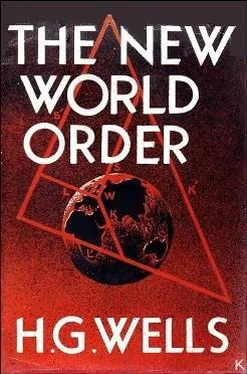
![Герберт Уэллс - The War of the Worlds [С англо-русским словарем]](/books/26611/gerbert-uells-the-war-of-the-worlds-s-anglo-thumb.webp)

